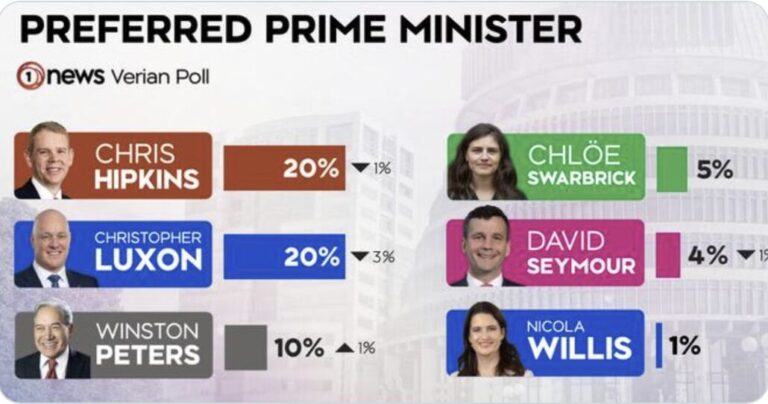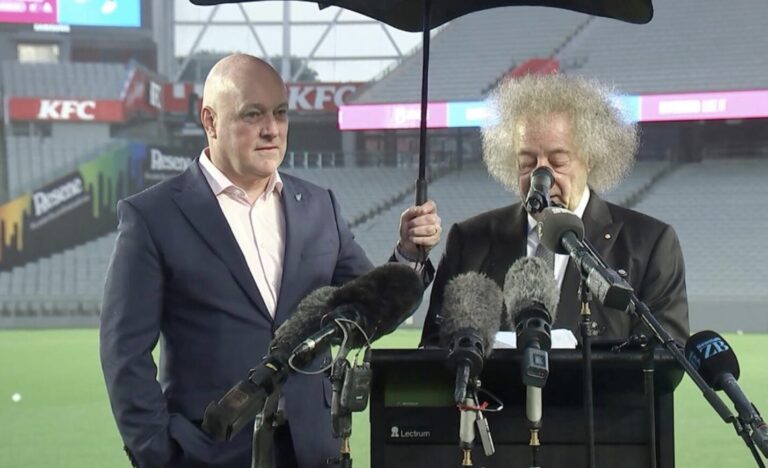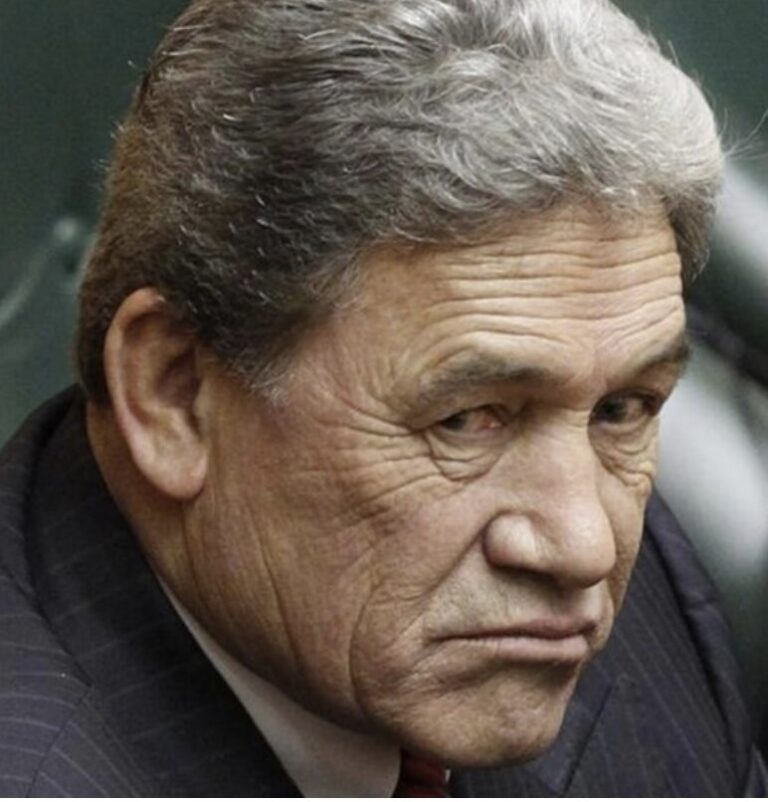Labour threaten greedy supermarket duopoly with wet bus ticket while hungry Kiwi Kids shiver
Supermarket duopoly put on notice: Government warns sector to change ‘at pace’ or face regulation
The Government says it is acting on a lack of competition in the supermarket sector and warned it to change “at pace” or face regulation.
Commerce and Consumer Affairs Minister David Clark today revealed the Government’s response to the Commerce Commission’s market study into supermarkets, published in March.
The Commission estimated Countdown and Foodstuffs were making excess profits of about $430 million a year – more than $1 million a day.
As the political battle over the cost of living crisis has raged on, the Government said that it reserved to go further than the Commerce Commission’s recommendations if it saw the need.
What a disappointing nothing that has been the outcome of Labour’s spineless attempt to smash the Supermarket Duopoly.
Rather than be radical and seizing 30% of the Duopoly to force market competition, Labour will take the watered down Commerce Commission recommendations and implement 12 of them.
Yawn.
This will do sweet fuck all and it’s just another fucking example of this spineless, gutless, do nothing Government talking. huge game and then not even bothering to turn up to play.
Right now, Russia and the Ukrainian conflict is impacting everything in terms of food and materials price inflation on top of China’s shut down thanks to their zero tolerance of Covid policy. That is going to see prices explode and I’ve argued inflation will hit double digits by December.
Being told some regulatory tweaks to the Duopoly power of the greedy supermarkets is all Labour have managed while you go hungry and cold will be another example of big promises and empty delivery when people are at their most vulnerable.
Labour are a joke looking for a punchline. This could have been their saving grace, it’s another hollow nothing.
It’s almost like they don’t even want to win the next election.
If you want something done right, lock David Clark up first.
Increasingly having independent opinion in a mainstream media environment which mostly echo one another has become more important than ever, so if you value having an independent voice going into this pandemic and 2020 election – please donate here.
If you can’t contribute but want to help, please always feel free to share our blogs on social media.







I’ve just started reading Robert Reich’s 2010 book After-shock which I bought from the local library for $1 it being remaindered. I wonder how many people have read it. It makes some really good points and keeps on doing so as I turn the pages.
He starts off in the first chapter about Marriner Eccles in the USA, a self made millionaire found himself at a loss at how to recover from the Great Depression. Some pundits said it was a natural thing in the financial process and would self- correct, and some thought it a message from God. Eccles was a Mormon and had ideas about that and didn’t see the economy self – correcting either. Read on for what he did. It’s so interesting I can hardly wait for the next chapter. Penguin lets us read a little about Eccles and you can see how striking and direct the writing is – a really good story – and a true one. https://www.penguinrandomhouse.com/books/200720/aftershockinequality-for-all–movie-tie-in-edition-by-robert-reich/
…For many months thereafter, Eccles steeped himself in the work of the Treasury and the Roosevelt administration, pushing his case for why the government needed to go deeper into debt to prop up the economy, and what it needed to do for average people. Apparently he made progress. Roosevelt’s budget of 1934 contained many of Eccles’s ideas, violating the president’s previous promise to balance the federal budget. The president “swallowed the violation with considerable difficulty,” Eccles wrote.
The following summer, after the governor of the Federal Reserve Board unexpectedly resigned, Morgenthau recommended Eccles for the job. Eccles had not thought about the Fed as a vehicle for advancing his ideas. But a few weeks later, when the president summoned him to the White House to ask if he’d be interested, Eccles told Roosevelt he’d take the job if the Federal Reserve in Washington had more power over the supply of money, and the New York Fed (dominated by Wall Street bankers), less. Eccles knew Wall Street wanted a tight money supply and correspondingly high interest rates, but the Main Streets of America—the real economy—needed a loose money supply and low rates. Roosevelt agreed to support new legislation that would tip the scales toward Main Street. Eccles took over the Fed.
It would be good if we could all read the same thing and then give our personal thoughts. At present the discussions on the blog are often like kids aiming mud pies as the local lord goes by. (I have been watching Poldark on the screen at home and have that peasant resentment feeling!)
From the looks of it, The Warehouse is oh-so-quietly going to move into the market. The government can use various road-building provisions in the RMA to make things easier for them.
Given the urgency to address the supposed excess profits of $375m year accumulated by supermarkets, I look forward to seeing how the gov’t responds and addresses the $1700 m windfall “profit” the Govt has made by not adjusting the tax brackets for inflation in recent years. Presumably they will be equally responsive to addressing that wrong
Perhaps spend it on infrastructure that National failed to spend it on yet still got us deeper and deeper in debt.
Absolute nonsense. The duopoly has made windfall profits off the backs of New Zealanders. Seize their stores, and seize their money. Simple as
Ironically under National, who are hardly the doyen of care for ordinary people, were also aware of this duopoly and the problems it caused,. Back then my local Progressive supermarket was forced to surrender it to Foodstuffs, only because Progressive had so many supermarkets clumped in our area that it was in essence, a monopoly. Still a duopoly but at least that did something positive in my area and I assume it happened elsewhere.
There is nothing in reality stopping the government forcing both to shed some of their stores, compensated of course, to go to a third player.
And let’s not forget the telecommunications industry simply fucked New Zealanders over with cellular communication charges under a duopoly until 2degrees came along.
Its never going to change until a third player hits the market!
Agree XRAY. Regulatory bodies in many jurisdictions force companies in mergers etc to sell off bits and pieces. Not many governments ( at least none I would support) just steal assets. Where would that end.
Why would they be compensated? They’ve stolen enough money from us already. It’s time to stop thinking like the only direction we can go is the path of the failed state, the path of privatization.
Privatization never happens at a fair rate that pays we, the people, the price they deserve for the loss of our assets. Why should nationalization pay the usurers, the crooks, out anything approaching what THEY would like to have for the assets that should always have been nationalized?
John they may have made huge profits but they haven’t stolen anything (in a legal sense).
You will have to help understand why you think we are going down the path of privatisation when talking about this particular situation.
I agree X-Ray although I think it a bit disingenuous those stating Labour are a bit slow, given Costco is now in NZ and now potentially Aldi. As you quite right suggest, change will come should this occur…
https://www.nzherald.co.nz/business/supermarket-giant-aldi-eyes-new-zealand-joining-costco-to-shake-up-duopoly/25M5FSB65PBR4PGLOTALAHBXAU/
Its the DNA of this particular Labour government, appearance is everything. Substance, who cares?
I don’t actually think it is a wet bus ticket at all. Your issues Martyn are both the time to make an impact and the government not seizing assets off private industry. I get the timing piece but I don’t agree that the government seizing assets is a sure fire election winner. Do you mean the government forces the current owners to sell to another private company or the government invests itself? I assume you don’t mean actual, Dick Turpin style, stand and deliver theft.
That is EXACTLY what I mean
Ok, for me it’s hard to say if public unease around three waters is weighted more towards the local democracy piece, or the co governance aspect. If it’s more about democracy, then 3 waters coupled with taking 30% of the assets of the duopoly (free of charge!) would not be an election winner in my view. I get that we want cheaper groceries but are we “ready for that jelly?”
Nationalization isn’t theft, you crook. Privatization is theft.
I think it’s theft if a private asset is taken by the government for no consideration and against the will of the asset owner. We are not talking about privatising a state owned asset in this example are we?